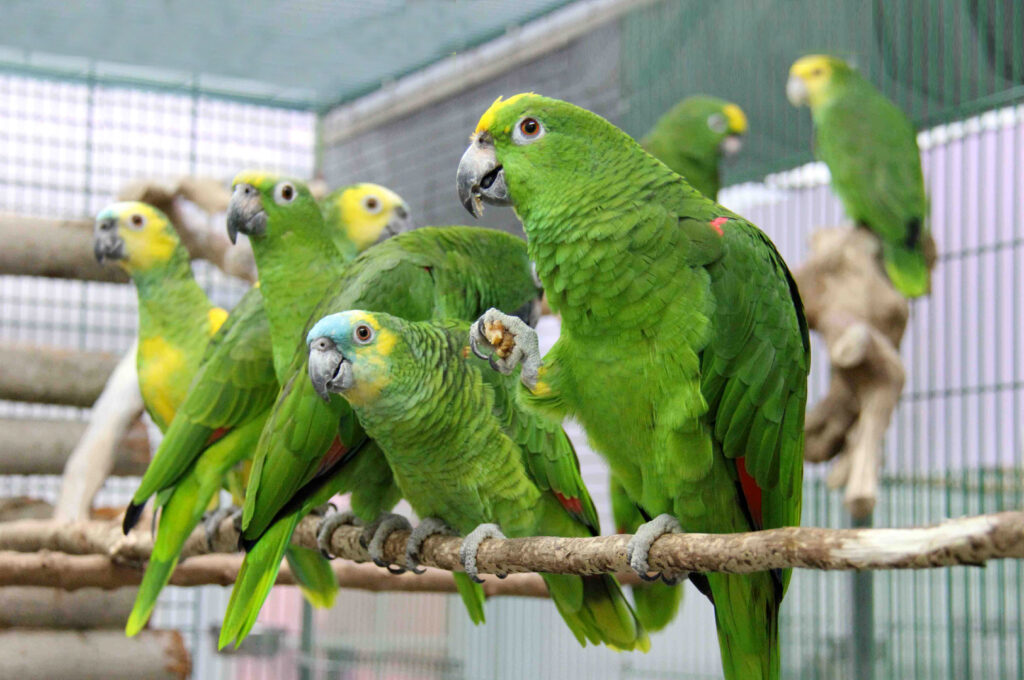Your cart is currently empty!
HARI Official Brand Site
Mission
As a leader in avian research, HARI’s mission is to promote the advancement and improvement of companion bird care and aviculture through education and research in areas of psittacine health, nutrition, breeding, early parrot education, and product development. In addition, HARI supports global efforts in wild parrot conservation networking with veterinarians and field researchers.
For years, HARI has been at the forefront of researching parrot care and breeding. At present, the facility is home to over 400 pairs of parrots and other companion bird species. These birds are descendants of breeding pairs from previous generations and have achieved genetic self-sufficiency for many generations to come. The facility’s research covers a wide range of fields, including disease control, nutrition, pair bonding, and the influence of temperature, humidity, and light cycles on breeding. Among these fields, HARI is the leading advocate for formulated diets and their exclusive feeding studies.
The Early Years
It all began with bird seed in 1955 when Mark’s father Rolf C. Hagen came over to Canada from Germany and began selling specialty seeds from farmers in Saskatchewan, Manitoba, and Ontario for export back into Germany. During that time, Rolf C. Hagen Inc. introduced rapeseed and rich polished sunflower seeds, which are still major crops in Canada.
In the early 80s Rolf C. Hagen Inc, was a major supplier (to Canadian pet shops all across Canada) of Canadian bred budgies and cockatiels from local family run bird breeding operations. Around the same time, Mark took an interest in parrot breeding as his uncle had five parrot quarantine stations (as Hagen was also a major importer of parrots) in Canada; Mark convinced the family that importing parents from the wild didn’t make sense, it was inhumane, and that they should really be breeding in captivity. So at 25 years of age, after completing his master’s in Agriculture at the University of Guelph, specializing in psittacine aviculture with a concentration in nutrition and zoology, Mark established HARI.
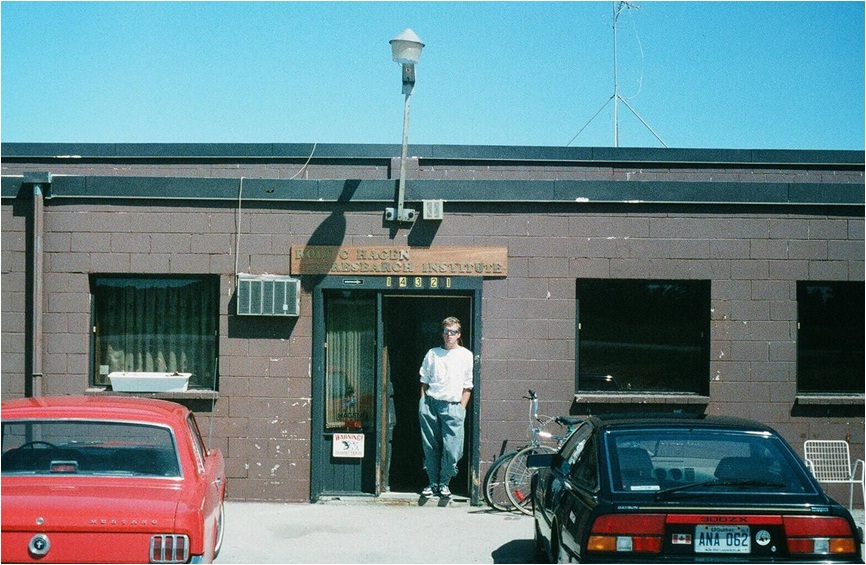
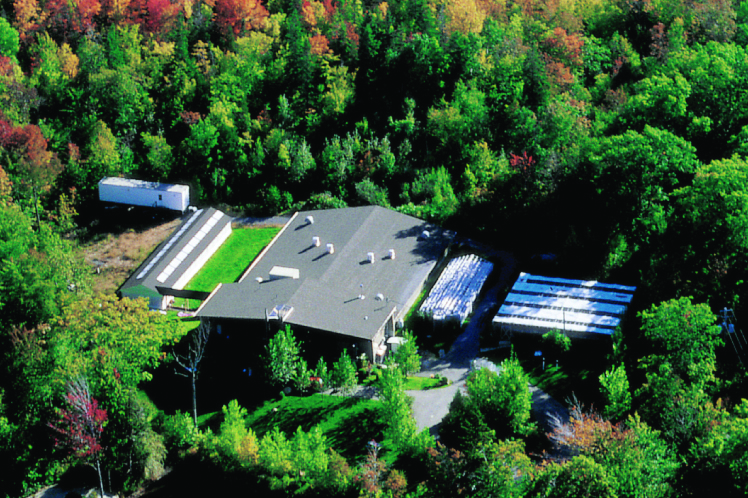
The HARI Flock
The HARI breeding colony includes a wide genetic diversity of captive bred birds; during the course of its operations, the facility achieved a significant milestone in that all of its avian flock are offspring of breeding pairs that have been kept back from previous generations, ensuring continued aviculture at HARI as well as demonstrating that the science of breeding birds in captivity has made significant progress. HARI’s continuous advancements in avian husbandry and nutrition research has resulted in discoveries that enhance the quality of captive breeding and the health of avian companions. HARI is now genetically self-sustaining for several generations into the future. With parrots living for many decades, this will go on well into the future.
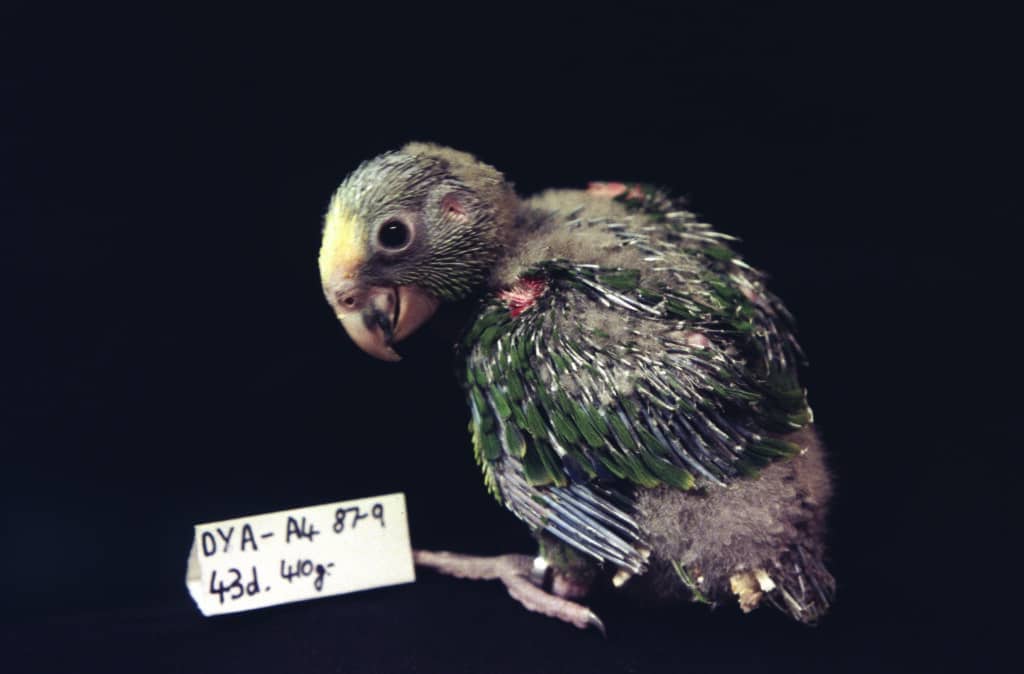
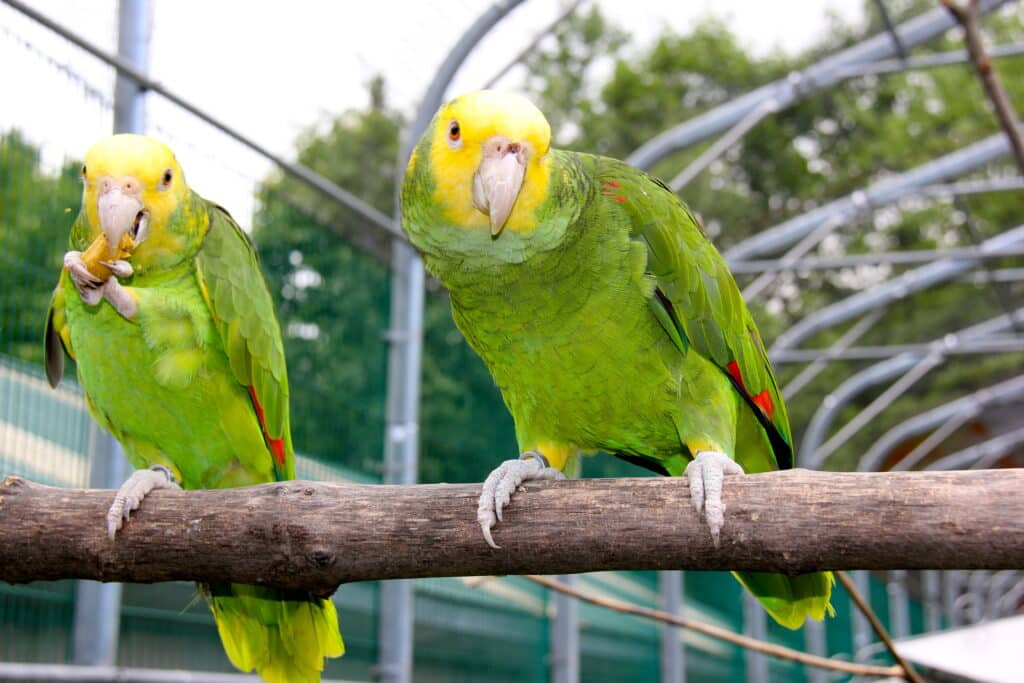
The Research
Consulting with a dynamic team of avian nutritionists, veterinarians and technicians, HARI is responsible for innovations such as Tropican, Tropimix and PRIME supplement formulas which have been tested and fed exclusively to their own breeding colony for over 35 years. Every Tropican and Tropimix lot manufactured is subjected to feeding test trials with the HARI flock. Weight and health are monitored daily for digestibility and optimum nutritional value. The HARI team takes great pride in the knowledge of Tropican’s nutritional excellence in rearing and sustaining the health and well-being of thousands of parrots over several generations at HARI. At a time when most bird food companies have shut their research centers, HARI continues its ongoing work on the research and development of advanced bird nutrition.
To share their experiences, HARI constantly publishes research on topics such as disease control, pair bonding, nutrition and the influence of temperature, humidity, and light cycles on breeding. The HARI team is happy to make this information available for you throughout the pages of this website.
All of the articles and materials found on this website are protected under the copyright and trademark laws by their respective owners. No articles or materials in whole or in part may be used without the express permission of the Hagen Avicultural Research Institute. We are happy to make this information available to you, please contact us.
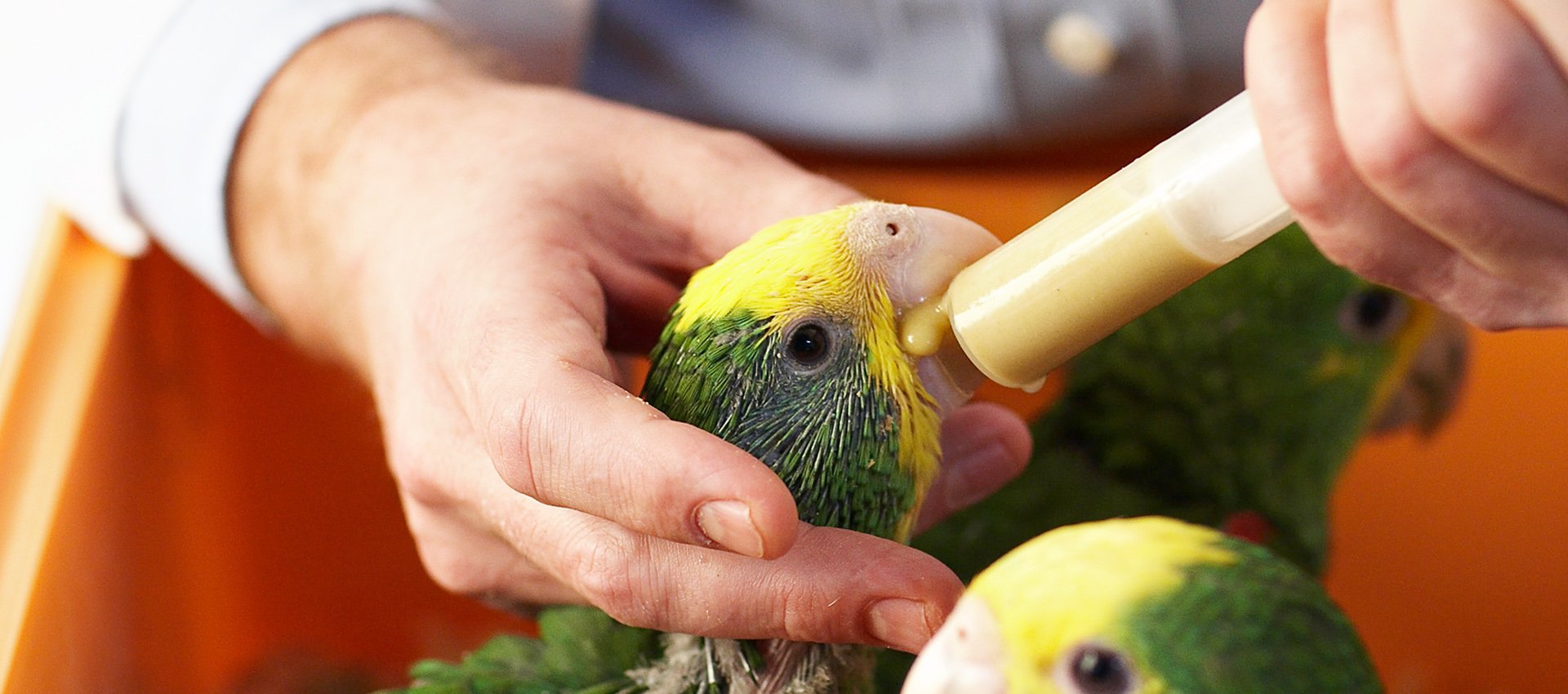
Simplify Hand-Feeding with Tropican.
Tropican Hand-Feeding Formula is incredibly easy to prepare, won’t separate, won’t stick to feathers, and is easy to digest making it an excellent feeding option for baby parrots up to fledglings. Simply mix the dry formula with hot water and feed with ease.

